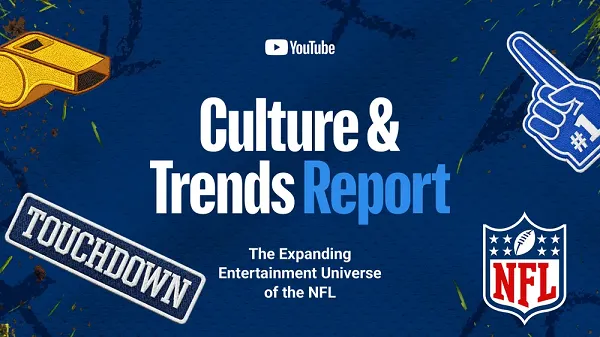Healthy Returns: Trump seeks to change Medicare drug price negotiations in a win for pharma
Trump proposed a change to Medicare price talks that has long been sought after by the pharmaceutical industry.

U.S. President Donald Trump speaks to the media during the annual White House Easter Egg Roll, on the South Lawn of the White House in Washington, D.C., U.S., April 21, 2025.
Leah Millis | Reuters
A version of this article first appeared in CNBC's Healthy Returns newsletter, which brings the latest health-care news straight to your inbox. Subscribe here to receive future editions.
After what felt like an endless streak of bad news, drugmakers finally caught a break last week.
President Donald Trump issued an executive order that partly targets a key provision of the Inflation Reduction Act that allows Medicare to negotiate drug prices with manufacturers. He proposed a change that the pharmaceutical industry has long sought.
In the wide-ranging order, Trump directed Health and Human Services Secretary Robert F. Kennedy Jr. to work with Congress to modify a piece of the Medicare drug price negotiation rules, which differentiate between small-molecule drugs and biologic medicines.
Currently, the law essentially spares biologics like vaccines from new negotiated prices for 13 years after they receive U.S. approval, compared with just nine years for small-molecule drugs that come in a pill or tablet form. The industry contends that the discrepancy – or what drugmakers call the "pill penalty" – discourages companies from investing in the development of small-molecule drugs, which are generally cheaper, easier to manufacture and more convenient for patients to take.
Trump's executive order voiced those concerns, saying the discrepancy "threatens to distort innovation." Lawmakers on both sides of the aisle could be receptive to the proposed change, especially after some introduced bipartisan legislation last year that also seeks to eliminate the difference.
It could have huge implications for drugmakers, patients and Medicare's spending on prescription drugs.
An analysis from the health policy research organization KFF said the change would mean small-molecule drugs would be on the market longer before they are eligible for negotiations, which could lead to an increase in Medicare prescription drug spending, higher medication prices and steeper premiums in Medicare Part D plans.
Changing the law "would come at a cost to Medicare and beneficiaries by giving drug companies 4 additional years of setting their own prices on these drugs prior to being eligible for negotiation by the federal government, unless combined with other changes to prevent higher spending," the analysis said.
More than half of the drugs – 13 out of 25 – in the first and second rounds of negotiations would have been ineligible at the time they were selected if the discrepancy between small-molecule treatments and biologics didn't exist, according to KFF. Those 13 drugs accounted for about two-thirds of total gross Medicare Part D spending on the 25 treatments, or $61 billion out of $91 billion, KFF said.
That includes the blood thinner Eliquis from Bristol Myers Squibb and Pfizer, as well as the Type 2 diabetes treatment Jardiance from Eli Lilly and Boehringer Ingelheim.
Novo Nordisk would be "among the biggest beneficiaries" if the pill penalty is removed, according to a Thursday note from TD Cowen analyst Michael Nedelcovych. At the top of the list of drugs selected in the second round of talks are the company's blockbuster diabetes injection Ozempic, weight loss shot Wegovy and diabetes pill Rybelsus, which are considered one product for the sake of the negotiations since they all share the same active ingredient, semaglutide.
Without the so-called pill penalty, Ozempic, Wegovy and Rybelsus would not be eligible until 2031, which is only one year before patent expiration in the U.S., Nedelcovych said.
Trump's executive order wasn't all good news for pharma. Analysts pointed out that it contained other proposals that the pharmaceutical industry has strongly opposed.
For example, it calls on the Food and Drug Administration to open up a pathway for more drug imports from Canada, where prescription medications are far cheaper. That was an element of Trump's first-term agenda, and appears to clash with his planned tariffs on pharmaceuticals.
In a note on Tuesday, BMO Capital Markets analyst Evan Seigerman added that "we're also not out of the woods on tariffs, FDA, or the potential for further drug pricing reform." He is referring to the massive overhaul at the FDA and other federal health agencies under Robert F. Kennedy Jr., who now leads the Department of Health and Human Services.
"While we are encouraged with this [executive order,] we're cautious as to what comes next from the Trump Administration for BioPharma," Seigerman said.
We'll be sure to cover any of Trump's other moves, so stay tuned.
Feel free to send any tips, suggestions, story ideas and data to Annika at annikakim.constantino@nbcuni.com.
UnitedHealth's advantage in Medicare could be fading
UnitedHealth Group last week reported a rare earnings and revenue miss for the first quarter, as medical costs in its Medicare Advantage business weighed on results.
UnitedHealth has navigated the Biden-era reimbursement pressure on Medicare plans better than its peers over the last few years, but as rivals like Humana and Centene cut back on their footprints this year, UnitedHealth picked up new members who have required a lot more outpatient care than expected.In contrast, Elevance Health reported first-quater medical costs below analyst estimates.
Executives said they are seeing elevated medical costs in Medicare, but those are priced into their premiums. As shake-ups in Medicare continue, bigger may not be a big advantage.
Feel free to send any tips, suggestions, story ideas and data to Bertha at bertha.coombs@nbcuni.com.
Latest in health-care tech: Epic is inching into the public eye with new social media presence, podcasts
The eponymous sign outside Epic headquarters in Verona, Wisconsin.
Source: Yiem via Wikipedia CC
For readers like this health tech reporter who spend a lot of time thinking, researching and talking about the U.S. health-care system, it can be easy to forget that Epic Systems is not a household name for most Americans.
Many people are familiar with Epic because of its patient portal MyChart, but most of them aren't as aware of the central role its technology plays within the broader health-care industry. Epic's software is used by more than 65,000 clinics and 2,900 hospitals, including the vast majority of major health systems in the U.S.
The company is a health-care technology giant, but it's notoriously private, and that's largely by design. Epic has no marketing department and it doesn't advertise, according to its CEO and founder Judy Faulkner. It never has.
To give you a sense of how the company feels about marketing, Epic declared it would replace all of its developers with marketing staff as an April Fools' prank one year.
"During its 43-year history of creating award-winning healthcare software, Epic has prided itself on having a staff that's heavily focused on research and development and not focused on marketing. But times are changing, and Epic needs to keep up," the fake announcement reads.
Faulkner rarely does media appearances, and for the most part, Epic has largely tried to keep its head down over the years.
In recent weeks, however, the company appears to have started to change its posture. Epic started posting on the social media platform X, coincidentally, on April Fools' Day. The company confirmed the authenticity of the account to CNBC.
Seth Hain, senior vice president of research and development at Epic, participated in a podcast with Julie Yoo, general partner at the venture capital firm Andreessen Horowitz, that was released last week. Andreessen Horowitz is one of the most high-profile firms in Silicon Valley, but Epic has never accepted any investment from venture capitalists.
And on Monday, the podcast "Acquired," which tells the stories of companies and their founders, released a four-hour-long episode about Epic. The podcast is the No. 1 Technology show on Apple Podcasts and Spotify and reaches more than 1 million listeners, according to its website. It's hard to know exactly how much Epic assisted with the research for the episode, but the hosts do mention that the company confirmed some facts.
Taken together, these developments suggest that Epic is at least exploring a more public-facing persona. To some degree, the company's April Fools' Day prank might actually ring true: "times are changing, and Epic needs to keep up."
Feel free to send any tips, suggestions, story ideas and data to Ashley at ashley.capoot@nbcuni.com.

 JaneWalter
JaneWalter 































